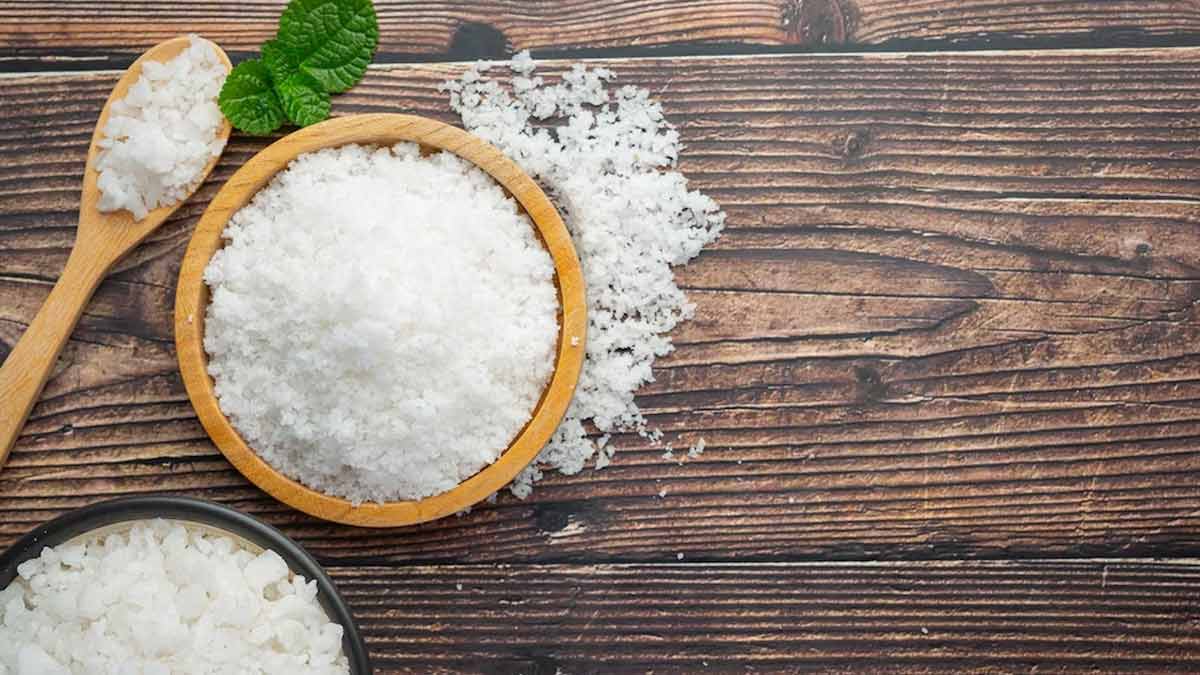
Salt is an integral part of our diet. It enhances the taste of the food and also provides several health benefits. Composed of sodium and chloride ions, salt is an essential nutrient that plays a crucial role in various body functions, said Bhavisha Khuman, Nutritionist & Dietician, Jaslok Hospital and Research Centre, Mumbai. However, excessive salt intake can be harmful for the body and can affect some individuals drastically. Speaking with the OnlyMyHealth team, Nutritionist Bhavisha, discusses the benefits and side effects of excess salt consumption.
Table of Content:-
Also Read: Sour Taste In The Mouth? Possible Causes To Note
Why You Need Salt In Your Food

When consumed in moderation, there are many benefits of salt. These include:
- Maintains electrolyte balance
- Assists nerve functions
- Improves muscle contraction
- Facilitates nutrient absorption
- Hydration
- Enhances flavour
Potential Side Effects Of Excessive Sodium Intake
Excess salt/sodium intake can be harmful for your body. Side effects can include:
- High blood pressure
- Fluid retention
- Kidney issues
- Calcium loss
How Much Salt Intake In A Day Is Healthy?

According to Khuman, it's worth noting that while excessive sodium intake can have adverse effects, low sodium intake can also be problematic. “Sodium is an essential nutrient, and a balanced approach is important for overall health. The recommended daily intake of sodium varies depending on factors, such as age, sex, and specific health conditions. It's always advisable to consult with a healthcare professional for personalised dietary advice,” she advised.
The World Health Organization (WHO) recommends that ideally adults should consume less than 2,000 mg (2 grams) of sodium per day and the upper limit for daily sodium intake is 5 grams.
According to the American Heart Association (AHA), adults should aim for a maximum of 2,300 mg of sodium per day, which is approximately 1 teaspoon of salt. However, they also emphasise that an ideal limit for most adults, especially those with high blood pressure, is 1,500 mg of sodium per day or less.
Also Read: Bloating, Burping, And Belching: When Does Acid Reflux Become Serious?
When Should You Avoid Eating Salt?
Khuman said, “While salt is an essential nutrient, there are certain situations when it may be advisable to limit or avoid its consumption.” Here are some instances when you may need to be cautious with your salt intake:
High Blood Pressure
If you have high blood pressure or are at risk of developing it, it is generally recommended to reduce your sodium intake. High sodium levels can contribute to elevated blood pressure, which increases the risk of heart disease, stroke, and kidney problems, said Nutritionist Khuman. Consult with your healthcare provider or a registered dietitian to determine the appropriate sodium intake for your condition, she added.
Kidney Disease
Individuals with kidney disease or impaired kidney function may need to restrict their salt intake. The kidneys play a vital role in regulating sodium levels in the body, and when kidney function is compromised, excess sodium can put additional strain on the kidneys. Your healthcare provider or dietitian can provide guidance on the appropriate sodium restriction for your specific condition.
Edema and Fluid Retention
Certain medical conditions, such as congestive heart failure, liver cirrhosis, or kidney problems, can cause fluid retention and edema. In such cases, reducing sodium intake can help alleviate symptoms by minimising fluid retention.
Some Medication Interactions
Medications, such as diuretics (water pills), may increase the excretion of sodium and water from the body. If you are taking such medications, your healthcare provider may recommend adjusting your salt intake to maintain a proper electrolyte balance.
Personal Sensitivity
Some individuals may be more sensitive to the effects of salt, experiencing bloating, swelling, or discomfort after consuming high-sodium foods. If you notice adverse effects after consuming salt, you may need to reduce your intake, Khuman advised.
Who Should Avoid Salt?

Certain groups of people are advised to avoid excessive salt intake. These include:
- Individuals with high blood pressure
- Individuals with heart disease
- Individuals with kidney disease
- Individuals with certain liver conditions, such as liver cirrhosis; certain liver diseases can lead to fluid retention and sodium imbalances
- Individuals with edema, which refers to swelling caused by fluid retention
Conclusion
Salt is an essential component of our diet. But it is important to have it in moderation. Note that individual needs may vary, and it's always a good idea to consult a healthcare provider or a registered dietitian for personalised dietary recommendations, especially if you have specific health conditions or concerns related to salt intake.
Also watch this video
How we keep this article up to date:
We work with experts and keep a close eye on the latest in health and wellness. Whenever there is a new research or helpful information, we update our articles with accurate and useful advice.
Current Version